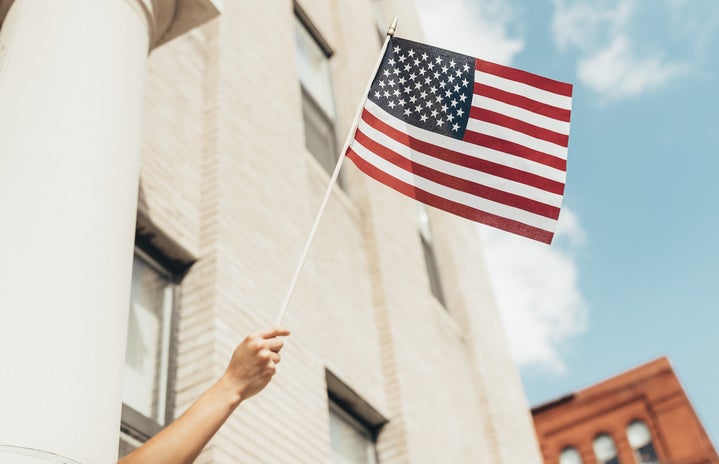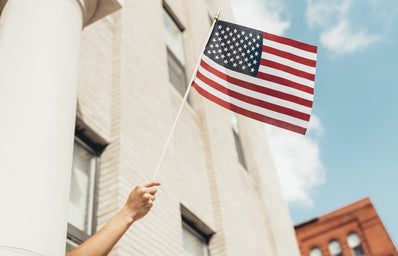I’m writing this on the morning that Joe Biden and Kamala Harris have been declared the next President and Vice President of the United States. This morning, people are cheering from their apartment balconies and tapping friendly honks from their cars, and for the first time in four years, I feel proud of something our country has done.
But that being said, it is a bittersweet moment.
The last four years have been morally expensive to our nation. From the first day President Trump took office, rights for Black, Indigenous, and People of Color (BIPOC), immigrants, LGBTQ+ folks, the poor, and women have been systematically oppressed and threatened. Our nation has been divided along strict party lines to arguably the greatest extent in this nation’s history. In response, Democrats and progressives have mobilized. More liberal women than ever before ran a campaign in the 2018 midterm elections and protests, and youth movements from the Women’s March to March for Our Lives have become some of the largest in this country’s history.

However, we must recognize that the systemic problem of this country is not just Donald Trump. Donald Trump is a symptom of over two hundred years of oppression and disenfranchisement of those in the margins. People are touting this election as a sign that American democracy works, but four years ago the same people were arguing the opposite. Let us not forget that with the exception of 2004, Republicans have not won the popular vote in the last 28 years, yet have had a president for 12 of those years. Let us not forget that especially Black Americans have been excluded from participating in our voting process since emancipation, and despite the Voting Rights Act of 1965, still face barriers to voting and exclusion from party politics in a nation they built. Let us not forget that Joe Biden opposed gay marriage in 2008 and crafted one of the most racist crime bills in US history.
The reality of this nation is that Democrats and Republicans alike continue to serve the wealthiest Americans, and often look to protect BIPOC, LGBTQ+ folks, disabled people, and other marginalized groups when it is electorally convenient to them. Especially within the Democratic party, we have relied on Black women without really helping to dismantle the systems that oppress Black women, from the prison industrial complex to the school to prison pipeline.

And what’s more, we have to reckon with the fact that 70,598,535 Americans voted for Donald Trump. 47.7% of this country. That is not just a vote for Donald Trump, but a vote that endorses white supremacy, sexism, homophobia, transphobia, and racism and ignores Trump’s role in the death of over 200,000 Americans. Somehow, we must unify this segment of the country with those who voted for Joe Biden. But what we cannot do is allow unity to undermine freedom. As CNN’s Yvette Simpson expressed so eloquently, unity means nothing if we must compromise the freedom of BIPOC, LGBTQ+ people, disabled folks, immigrants, and women.
I do not know how to go about that. It is a huge question and one I wish could be explained by just Donald Trump himself. But again, it is a symptom of the way our nation was built: on the backs of Black, Indigenous, and people of color and women alike.

What I do know, however, is that when liberals, progressives, and young people stay engaged, we see historic change. We’ve stayed engaged these last four years and started a conversation about a Green New Deal, about Black Lives Matter, about Time’s Up. We pushed Biden and Harris to create the most progressive platform in American history. So the path forward, to me, is to stay engaged. To keep Joe Biden as accountable as we kept Donald Trump. To not only recognize the immense contribution BIPOC folk have made to our nation, but to actually dismantle the systems of oppression that continue to threaten the livelihoods of BIPOC Americans. And one day, to see structural change in our republic that makes our elections truly democratic and prioritizes the most marginalized Americans. This is the least we can do, and for white folks, we must recognize that we are joining this conversation too late and be grateful to the BIPOC Americans who have been engaged in this battle since 1776.
For these reasons, I say that I love my country. I do not love America in the narrow view that many patriots define. I do not love this country blindly. I do not love this country because of the type of government we have. I do not love this country without criticism. But I love this country with a complete view of what it has been and can become. I love this country because of the sacrifices and resilience of American women, of American BIPOC, of American immigrants, of American LGBTQ+ people, and because of the allies who show up every day to make this country a better place. I love this country, and I want to make it better for everyone, including those who voted for Donald Trump. I love this country, and I want to fulfill its original promise — to one day provide liberty and justice, truly for all.



